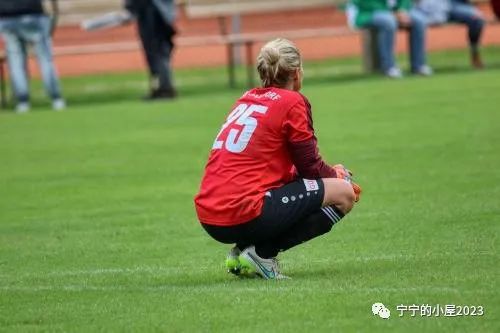许茹冰·短视频运营精准获客,专为企业打造短视频自媒体账号(^_-):nzc890
学了,感觉非常不错,受益匪浅!
需要的宝子+\\/♥:nzc890
相关其他课程都有:咨询方式♥V:nzc890



to repentance, then must her debt also be wiped away. Surely never before had any child been so smitten of God, and never had any father of an afflicted child bought God's mercy at so dear a price!
Such were the thoughts that Israel cherished secretly, though he dared not to utter them, lest he should seem to be bribing God out of his love of the child. And thus if his heart was glad as he turned towards home, it was proud also, and if it was grateful it was also vain; but vanity and pride were both smitten out of it in an hour, before he went through the gates of Fez (wherein he had slept the night preceding), by three sights which, though stern and pitiful, were of no uncommon occurrence in that town and province.
First, it chanced that as he was passing from the south-east of the new town of Fez to the gate that is at the north-west corner, going by the high walls of the Sultan's hareem, where there is room for a thousand women, and near to the Karueein mosque that is the greatest in Morocco and rests on eight hundred pillars, he came upon two slaveholders selling twelve or fourteen slaves. The slaves were all girls, and all black, and of varying ages, ranging from ten years to about thirty. They had lately arrived in caravans from the Soudan, by way of Tafilet and the Wargha, and some of them looked worn from the desert passage. Others were fresh and cheerful, and such as had claims to negro beauty were adorned, after their doubtful fashion, or the fancy of their masters, with love-charms of silver worn about their necks, with their fingers pricked out with hennah, and their eyelids darkened with kohl. Thus they were drawn up in a line for public auction; but before the sale of them could begin among the buyers that had gathered about them in the street, the overseers of the Sultan's hareem had to come and make a selection for their master. This the eunuchs presently did, and when two of them nicknamed Areefahs--gaunt and hairless men, with the faces of evil old women and the hoarse voices of ravens--had picked out three fat black maidens, the business of the auction began by the sale of a negro girl of seventeen who was brought out from the rest and passed around.
"Now, brothers," said the slave-master, "look see; sound of wind and limb--how much?"
"Eighty dollars," said a voice from the crowd.
"Eighty? Well, eighty to start with. Look at her--rosy lips, fit for the kisses of a king, eh? How much?"
"A hundred dollars."
"A hundred dollars offered; only a hundred. It's giving the girl away. Look at her teeth, brothers, white and sound."
The slave-master thrust his thumb into the girl's mouth and walked her round the crowd again.
"Breath like new-mown hay, brothers. Now's the chance for true believers. How much?"
"A hundred and ten."
"A hundred and ten--thanks, Sidi! A hundred and ten for this jewel of a girl. Dirt cheap yet, brothers. Try her muscles. Look at her flesh. Not a flaw anywhere. Pass her round, test her, try her, talk to her--she speaks good Arabic. Isn't she fit for a Sultan? She's the best thing I'll offer to-day, and by the Prophet, if you are not quick I'll keep her for myself. Now, for the third and last time--seventeen years of age, sound, strong, plump, sweet, and intact--how much?"
Israel's blood tingled to see how the bidders handled the girl, and to hear what shameless questions they asked of her, and with a long sigh he was turning away from the crowd, when another man came up to it. The man was black and old and hard-featured, and visibly poor in his torn white selham. But when he had looked over the heads of those in front of him, he made a great shout of anguish, and, parting the people, pushed his way to the girl's side, and opened his arms to her, and she fell into them with a cry of joy and pain together.
It turned out that he was a liberated slave, who, ten years before, had been brought from the Soos through the country of Sidi Hosain ben Hashem, having been torn away from his wife, who was since dead, and from his only child, who thus strangely rejoined him. This story he told, in broken Arabic; to those that stood around, and, hard as were the faces of the bidders, and brutal as was their trade; there was not an eye among them all but was melted at his story.
Seeing this, Israel cried from the back of the crowd, "I will give twenty dollars to buy him the girl's liberty," and straightway another and another offered like sums for the same purpose until the amount of the last bid had been reached, and the slave-master took it, and the girl was free.
Then the poor negro, still holding his daughter by the hand, came to Israel, with the tears dripping down his black cheeks, and said in his broken way: "The blessing of Allah upon you, white brother, and if you have a child of your own may you never lose her, but may Allah favour her and let you keep her with you always!"
That blessing of the old black man was more than Israel could bear, and, facing about before hearing the last of it, he turned down the dark arcade that descends into the old town as into a vault, and having crossed the markets, he came upon the second of the three sights that were to smite out of his heart his pride towards God. A man in a blue tunic girded with a red sash, and with a red cotton handkerchief tied about his head, was driving a donkey laden with trunks of light trees cut into short lengths to lie over its panniers. He was clearly a Spanish woodseller and he had the weary, averted, and downcast look of a race that is despised and kept under. His donkey was a bony creature, with raw places on its flank and shoulders where its hide had been worn by the friction of its burdens. He drove it slowly; crying "Arrah!" to it in the tongue of its own country, and not beating it cruelly. At the bottom of the arcade there was an open place where a foul ditch was crossed by a rickety bridge. Coming to this the man hesitated a moment, as if doubtful whether to drive his donkey over it or to make the beast trudge through the water. Concluding to cross the bridge, he cried "Arrah!" again, and drove the donkey forward with one blow of his stick. But when the donkey was in the middle of it, the rotten thing gave way, and the beast and its burden fell into the ditch. The donkey's legs were broken, and when a throng of Arabs, who gathered at the Spaniard's cry, had cut away its panniers and dragged it out of the water on to the paving-stones of the street, the film covered its eyes, and in a moment it was dead.
At that the man knelt down beside it, and patted it on its neck, and called on it by its name, as if unwilling to believe that it was gone. And while the Arabs laughed at him for doing so--for none seemed to pity him--a slatternly girl of sixteen or seventeen came scudding down the arcade, and pushed her way through the crowd until she stood where the dead ass lay with the man kneeling beside it. Then she fell on the man with bitter reproaches. "Allah blot out your name, you thief!" she cried. "You've killed the creature, and may you starve and die yourself, you dog of a Nazarene!"
This was more than Israel could listen to, and he commanded the girl to hold her peace. "Silence, you young wanton!" he cried, in a voice of indignation. "Who are you, that you dare trample on the man in his trouble?"
It turned out that the girl was the man's daughter, and he was a renegade from Ceuta. And when she had gone off, cursing Israel and his father and his grandfather, the poor fellow lifted his eyes to Israel's face, and said, "You are very kind, my father. God bless you! I may not be a good man, sir, and I've not lived a right life, but it's hard when your own children are taught to despise you. Better to lose them in their cradles, before they can speak to you to curse you."
Israel's hair seemed to rise from his scalp at that word, and he turned about and hurried away. Oh no, no, no! He was not, of all men, the most sorely tried. Worse to be a slave, torn from the arms he loves! Worse to be a father whose children join with his enemies to curse him!
He had been wrong. What was wealth, that it was so noble a sacrifice to part with it? Money was to give and to take, to buy and to sell, and that was all. But love was for no market, and he who lost it lost everything. And love was his, and would be his always, for he loved Naomi, and she clung to him as the hyssop clings to the wall. Let him walk humbly before God, for God was great.
Now these sights, though they reduced Israel's pride, increased his cheerfulness, and he was going out at the gate with a humbler yet lighter spirit, when he came upon a saint's house under the shadow of the town walls. It was a small whitewashed enclosure, surmounted by a white flag; and, as Israel passed it, the figure of a man came out to the entrance. He was a poor, miserable creature--ragged, dirty, and with dishevelled hair--and, seeing Israel's eyes upon him, he began to talk in some wild way and in some unknown tongue that was only a fierce jabber of sounds that had no words in them, and of words that had no meaning. The poor soul was mad, and because he was distraught he was counted a holy man among his people, and put to live in this place, which was the tomb of a dead saint--though not more dead to the ways of life was he who lay under the floor than he who lived above it. The man continued his wild jabber as long as Israel's eyes were on him, and Israel dropped two coins into his hand and passed on.
Oh no, no, no; Naomi was not the most afflicted of all God's creatures. And yet, and yet, and yet, her bodily infirmities were but the type and sign of how her soul was smitten.
On the hill outside the town the young Mahdi, with a great company of his people, was waiting for him to bid him godspeed on his journey. And then, while they walked some paces together before parting, and the prophet talked of the poor followers of Absalam lying in the prison at Shawan (for he had heard of them from Israel), Israel himself mentioned Naomi.
"My father," he said, "there is something that I have not told you."
"Tell it now, my son," said the Mahdi.
"I have a little daughter at home, and she is very sweet and beautiful. You would never think how like sunshine she is to me in my lonely house, for her mother is gone, and but for her I should be alone, and so she is very near and dear to me. But she is in the land of silence and in the land of night. Nothing can she see, and nothing hear, and never has her voice opened the curtains of the air, for she is blind and dumb and deaf."
"Merciful Allah!" cried the Mahdi.
"Ah! is her state so terrible? I thought you would think it so. Yes, for all she is so beautiful, she is only as a creature of the fields that knows not God."
"Allah preserve her!" cried the Mahdi.
"And she is smitten for my sin, for the Lord revealed it to me in the vision, and my soul trembles for her soul. But if God has washed me with water should not she also be clean?"
"God knows," said the Mahdi. "He gives no rewards for repentance."
"But listen!" said Israel. "In a vision of death her mother saw her, and she was afflicted no more. No, for she could see, and hear, and speak. Man of God, will it come to pass?"
"God is good," said the Mahdi. "He needs that no man should teach Him pity."
"But I love her," cried Israel, "and I vowed to her mother to guard her. She is joy of my joy and life of my life. Without her the morning has no freshness and the night no rest. Surely the Lord sees this, and will have mercy?"
The Mahdi held back his tears, and answered, "The Lord sees all. Go your way in trust. Farewell!"
"Farewell!"
CHAPTER XI
ISRAEL'S HOME-COMING
ISRAEL'S return home was an experience at all points the reverse of his going abroad. He had seven dollars in the pocket of his waistband on setting away from Fez, out of the three hundred and more with which he had started from Tetuan. His men had gone on before him and told their story. So the people whom he came upon by the way either ignored him or jeered at him, and not one that on his coming had run to do him honour now stepped aside that he might pass.
Two days after leaving Fez he came again to Wazzan. Women were going home from market by the side of their camels, and charcoal-burners were riding back to the country on the empty burdas of their mules. It was nigh upon sunset when Israel entered the town, and so exactly was everything the same that he could almost have tricked himself and believed that scarce two minutes had passed since he had left it. There at the fountains were the water-carriers waiting with their water-skins, and there in the market-place sat the women and children with their dishes of soup; there were the men by the booths with their pipes ready charged with keef, and there was the mooddin in the minaret, looking out over the plain. Everything was the same save one thing, and that concerned Israel himself. No Grand Shereef stood waiting to exchange horses with him, and no black guard led him through the town. Footsore and dirty, covered with dust, and tired, he walked through the streets alone. And when presently the voice rang out overhead, and the breathless town broke instantly into bubbles of sounds--the tinkling of the bells of the water-carriers, the shouts of the children, and the calls of the men--only one man seemed to see him and know him. This was an Arab, wearing scarcely enough rags to cover his nakedness, who was bathing his hot cheeks in water which a water-carrier was pouring into his hands, and he lifted his glistening face as Israel passed, and called him "Dog!" and "Jew!" and commanded him to uncover his feet.
Israel slept that night in one of the three squalid fondaks of Wazzan inhabited by the Jews. His room was a sort of narrow box, in a square court of many such boxes, with a handful of straw shaken over the earth floor for a bed. On the doorpost the figure of a hand was painted in red, and over the lintel there was a rude drawing of a scorpion, with an imprecation written under it that purported to be from the mouth of the Prophet Joshua, son of Nun. If the charm kept evil spirits from the place of Israel's rest, it did not banish good ones. Israel slept in that poor bed as he had never slept under the purple canopy of his own chamber, and all night long one angel form seemed to hover over him. It was Naomi. He could see her clearly. They were together in a little cottage somewhere. The house was a mean one, but jasmine and marjoram and pinks and roses grew outside of it, and love grew inside. And Naomi! How bright were her eyes, for they could see! Yes, and her ears could hear, and her tongue could speak!
Two days after Israel left Wazzan he was back in the bashalic of Tetuan. Each night he had dreamt the same dream, and though he knew each morning when he awoke with a sigh that his dream was only a reflection of his dead wife's vision, yet he could not help but think of it the long day through. He tried to remember if he had ever seen the cottage with his waking eyes, and where he had seen it, and to recall the voice of Naomi as he had heard it in his dream, that he might know if it was the same as he used to think he heard when he sat by her in his stolen watches of the night while she lay asleep. Sometimes when he reflected he thought he must be growing childish, so foolish was his joy in looking forward to the night--for he had almost grown in love with it--that he might dream his dream again.
But it was a dear, delicious folly, for it helped him to bear the troubles of his journey, and they were neither light nor few. After passing through El Kasar he had been robbed and stripped both of his small remaining moneys and the better part of his clothes by a gang of ruffians who had followed him out of the town. Then a good woman--the old wife, turned into the servant of a Moor who had married a young one--had taken pity on his condition and given him a disused Moorish jellab. His misfortune had not been without its advantage. Being forced to travel the rest of his way home in the disguise of a Moor, he had heard himself discussed by his own people when they knew nothing of his presence. Every evil that had befallen them had been attributed to him. Ben Aboo, their Basha, was a good, humane man, who was often driven to do that which his soul abhorred. It was Israel ben Oliel who was their cruel taxmaster.
When Israel was within a day's journey of Tetuan a terrible scourge fell upon the country. A plague of locusts came up like a dense cloud from the direction of the desert, and ate up every leaf and blade of grass that the scorching sun had left green, so that the plain over which it had passed was as black and barren as a lava stream. The farmers were impoverished, and the poorer people made beggars. Even this last disaster they charged in their despair to Israel, for Allah was now cursing them for Israel's sake. They were the same people that had thrust their presents upon him when he was setting out.
At the lonesome hut of the old woman who had offered him a bowl of buttermilk Israel rested and asked for a drink of water. She gave him a dish of zummetta--barley roasted like coffee--and inquired if he was going on to Tetuan. He told her yes, and she asked if his home was there. And when he answered that it was, she looked at him again, and said in a moving way, "Then Allah help you, brother."
"Why me more than another, sister?" said Israel.
"Because it is plain to see that you are a poor man," said the old woman. "And that is the sort he is hardest upon."
Israel faltered and said, "He? Who, mother? Ah, you mean--"
"Who else but Israel the Jew?" said she, and then added, as by a sudden afterthought, "But they say he is gone at last, and the Sultan has stripped him. Well, Allah send us some one else soon to set right this poor Gharb of ours! And what a man for poor men he might have been--so wise and powerful!"
Israel listened with his head bent down, and, like a moth at the flame, he could not help but play with the fire that scorched him. "They tell me," he said, "that Allah has cursed him with a daughter that has devils."
"Blind and dumb, poor soul," said the old woman; "but Allah has pity for the afflicted--he is taking her away."
Israel rose. "Away?"
"She is ill since her father went to Fez."
"Ill?"
"Yes, I heard so yesterday--dying."
Israel made one loud cry like the cry of a beast that is slaughtered, and fled out of the hut. Oh, fool of fools, why had he been dallying with dreams--billing and cooing with his own fancies--fondling and nuzzling and coddling them? Let all dreams henceforth be dead and damned for ever; for only devils out of hell had made them that poor men's souls might be staked and lost! Oh, why had he not remembered the pale face of Naomi when he left her, and the silence of her tongue that had used to laugh? Fool, fool! Why had he ever left her at all?
With such thoughts Israel hurried along, sometimes running at his utmost velocity, and then stopping dead short; sometimes shouting his imprecations at the pitch of his voice and beating his fist against the sharp aloes until it bled, and then whispering to himself in awe.
Would God not hear his prayer? God knew the child was very near and dear to him, and also that he was a lonely man. "Have pity on a lonely man, O God!" he whispered. "Let me keep my child; take all else that I have, everything, no matter what! Only let me keep her--yes, just as she is, let me have her still! Time was when I asked more of Thee, but now I am humble, and ask that alone."
On his knees in a lonesome place, with the fierce sun beating down on his uncovered head, amid the blackened leaves left by the locust, he prayed this prayer, and then rose to his feet and ran.
When he got to Tetuan the white city was glistening under the setting sun. Then he thought of his Moorish jellab, and looked at himself, and saw that he was returning home like a beggar; and he remembered with what splendour he had started out. Should he wait for the darkness, and creep into his house under the cover of it? If the thought had occurred an hour before he must have scouted it. Better to brave the looks of every face in Tetuan than be kept back one minute from Naomi. But now that he was so near he was afraid to go in; and now that he was so soon to learn the truth he dreaded to hear it. So he walked to and fro on the heath outside the town, paltering with himself, struggling with himself, eating out his heart with eagerness, trying to believe that he was waiting for the night.
The night came at length, and, under a deep-blue sky fast whitening with thick stars, Israel passed unknown through the Moorish gate, which was still open, and down the narrow lane to the market square. At the gate of the




课程我有,如你也有需要,可联系我小编❥(^_-):nzc890
~仅用于试 学及购买课程之参考,切勿用于其他用途,请支持购买正版课程!
免责申明:
公众号大部分资源来源于网络,仅供学习和交流使用,严禁商用!如有侵权请联系我们删除!,更多许茹冰·短视频运营精准获客,专为企业打造短视频自媒体账号 Eu内容,欢迎持续关注我们!! 本文中所有许茹冰·短视频运营精准获客,专为企业打造短视频自媒体账号 Eu相关图片均来自于CC0无版权图片,如有侵权尽快联系我们删除。

 上海市蒂艾孚网络科技有限公司
上海市蒂艾孚网络科技有限公司





发表评论
发表评论: